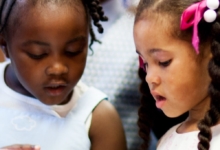
The majority of public schools and districts in the U.S. report they are working to support the social and emotional learning of students. But in too many places, the approach is to focus narrowly on changing student behavior rather than implementing practices that build relationships and create learning environments that support positive social and emotional growth. This is especially true in schools and districts that serve large populations of students of color and students from low-income backgrounds, exposing these students to environments that could do more harm than good.
In Social, Emotional, and Academic Development Through an Equity Lens, we layout how to shift the focus away from “fixing kids” and toward addressing adult beliefs and mindsets as well as school and district policies to create an equitable learning environment. School and district leaders must consider the context in which students live. Societal realities (e.g., racism, sexism, homophobia), individual realities (e.g., socioeconomic status, family dynamics, experiences in schools, access to opportunities), and cultural background all influence social, emotional, and academic development.
Our approach is supported by existing research as well as what our researchers learned from focus groups across the country with students and families of color, primarily those from Black and Latino communities. Participants discussed the importance of social and emotional skills; what students of color need to learn other than academic subjects; and what educators and school leaders can do to support social, emotional, and academic development for students of color. As the research in this area continues to grow, and as state, district, and school leaders consider policy changes to support social, emotional, and academic development, the voices of these families and students must be heard and valued.
Without equity-focused policies, the right mindset, and appropriate responses, educator biases (whether implicit or explicit) will continue to unfairly and unjustly marginalize some students. Many students of color and students from low-income backgrounds are seen as “broken” or in need of “fixing,” which undermines their excellence and results in real and harmful consequences when in fact the context in which students learn are what should be addressed. Social, emotional, and academic development should be administered with a students-first approach.
To that end, rather than simply adding on more policies to existing ones, schools and districts should revisit entirely what’s already in place first, and ask whether they equitably foster belonging, give challenging opportunities for students to thrive, and provide the supports students need. Social, Emotional, and Academic Development Through an Equity Lens provides a framework and action items for school and district leaders to undertake this work.



